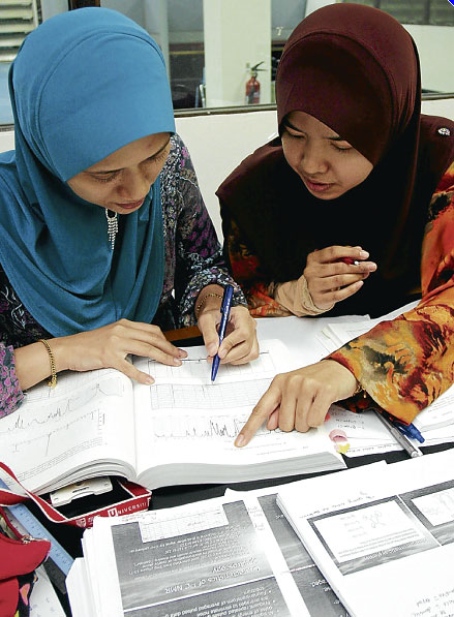In search of a modern path
The writer examines the divide between the moderates and extremists

THE Global Movement of Moderates took off with a bang last week. Themed In Pursuit Of An Enduring And Just Peace, it seeks moderation in the face of multifaceted forms of the extreme.
This not only goes beyond religio-ideological and military dimensions, but also includes economic crisis, political bankruptcy, unbridled social affluence and ecological excesses.
The movement is “global” in nature literally and figuratively, and timely too as most of these issues are heading towards a tipping point. Just as being healthy is more than the absence of disease, peace is more than the absence of war.
Prime Minister Datuk Seri Najib Razak is spot on when he identified the divide as between the moderates and extremists. The time has come to make a stand and say a resounding “no” to the latter and to those who are extremely poor — materially and spiritually!
Saying “no” alone, however, will not make any difference at all. There must be concerted action as well.
At the session entitled The Role Of Education In Nurturing Moderation, which I was privileged to chair, four eminent personalities and academics expounded on a number of enlightened viewpoints.
Professor Kishore Mahbubani, dean at Lee Kuan Yew School of Public Policy, says violence is on a downward trend globally despite President George W. Bush declaring that the world is a dangerous place. The reality is that with a fast expanding middle class, people desire stability rather than endorse violence.
The trend is the result of a wider access to education particularly among Asians who regard it as an investment. Educated largely in the West, they are able to form a platform for common references, presumably towards better understanding!
Kishore highlighted what he calls a “paradox” — Western education has “failed to educate Western elites” yet they are given much respect compared to their Asian counterparts.
It also implies that Western educated Asians too have failed to exercise the so-called platform for common references. Kishore demanded Asians to show more respect for and learn from each other.
Universiti Teknologi Mara chair Tan Sri Wan Mohd Zahid Mohd Noordin’s contention is the failure of education to nurture moderation and produce leaders of high moral values, for example.
He maintained that harmony between two vital aspects of a curriculum — the cognitive and affective — is less than perfect with too much emphasis on the former.
The curriculum has been overtly driven by a materialist race that focuses on high exchange value (“marketable”) courses.
In other words, education has been shaped by the environment, rather than the other way round.
In this context, the next speaker, Datuk Dr Syed Ali Tawfik Al-Attas of Albukhary Foundation, drew on “the right behaviour and social refinement”, or adab nurtured by self-discipline.
There has been erosion of the sense of purpose of education, which is about the grooming of leaders endowed with responsibility and less about acquiring paper qualification.
He lamented that concepts such as madrasah and waqf have been totally displaced in the refinement of civilisation.
KDU University College chancellor Professor Emeritus Tan Sri Khoo Kay Kim says that today’s educated are more confrontational in nature. They agree to disagree and are unable to debate meaningfully.
It is tempting to summarise that in nurturing a sustained moderation, as a principle rather than just a stance, there is much to be done.
Education has evolved into an “extreme” preoccupied by the conditions and situations that are pushing the world in the same direction.
Khoo says he is “lost in the present world of education”. He is certainly not alone.
